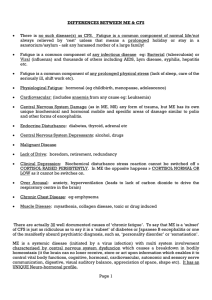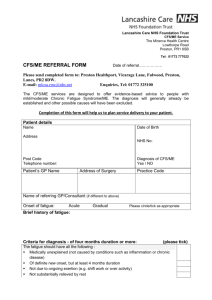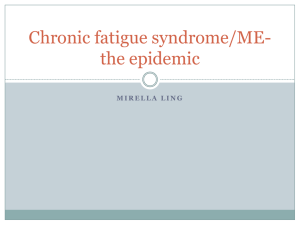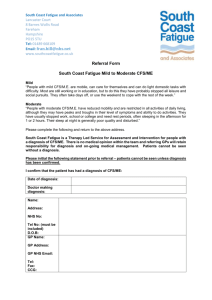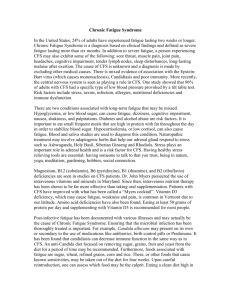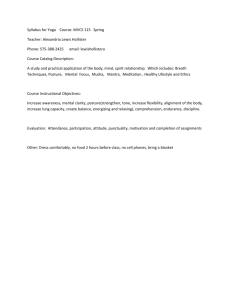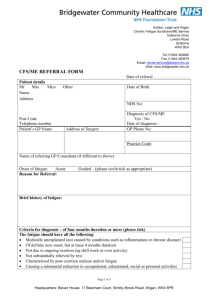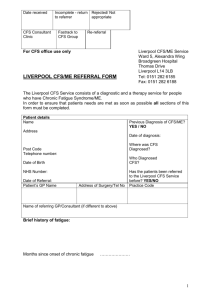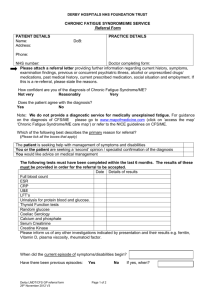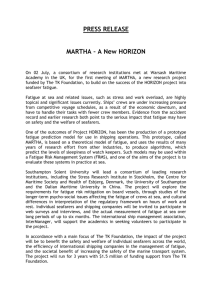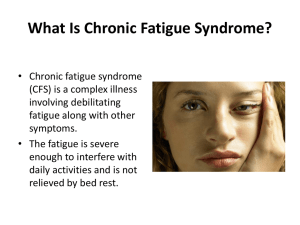Kathy Rowe Worksheet
advertisement
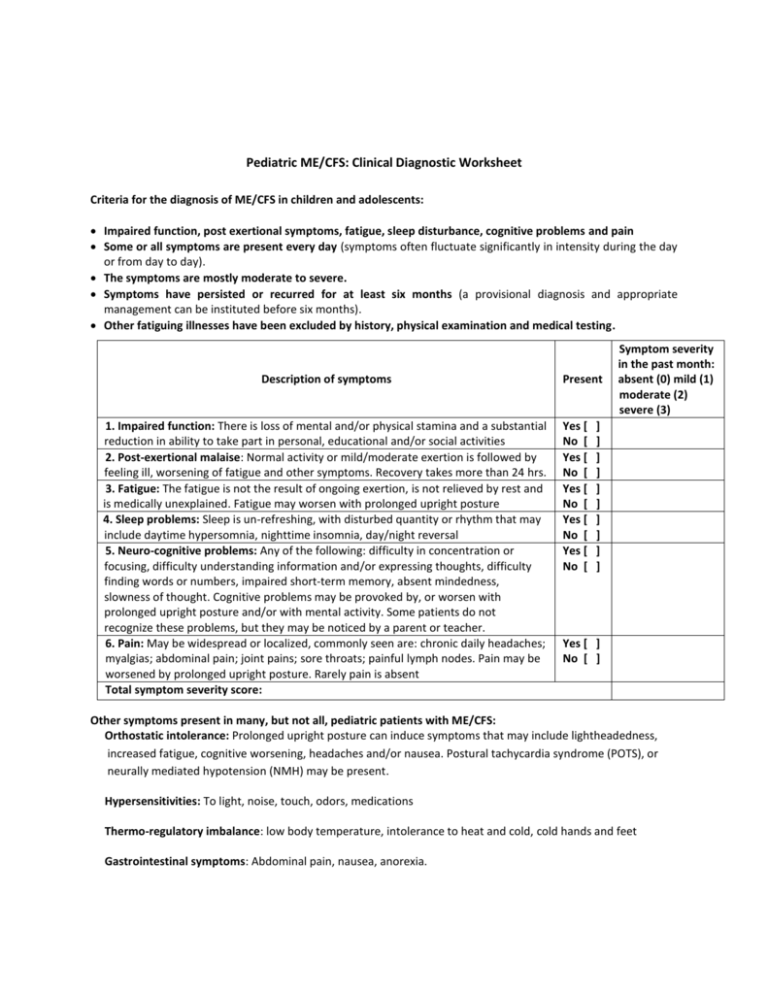
Pediatric ME/CFS: Clinical Diagnostic Worksheet Criteria for the diagnosis of ME/CFS in children and adolescents: Impaired function, post exertional symptoms, fatigue, sleep disturbance, cognitive problems and pain Some or all symptoms are present every day (symptoms often fluctuate significantly in intensity during the day or from day to day). The symptoms are mostly moderate to severe. Symptoms have persisted or recurred for at least six months (a provisional diagnosis and appropriate management can be instituted before six months). Other fatiguing illnesses have been excluded by history, physical examination and medical testing. Description of symptoms 1. Impaired function: There is loss of mental and/or physical stamina and a substantial reduction in ability to take part in personal, educational and/or social activities 2. Post-exertional malaise: Normal activity or mild/moderate exertion is followed by feeling ill, worsening of fatigue and other symptoms. Recovery takes more than 24 hrs. 3. Fatigue: The fatigue is not the result of ongoing exertion, is not relieved by rest and is medically unexplained. Fatigue may worsen with prolonged upright posture 4. Sleep problems: Sleep is un-refreshing, with disturbed quantity or rhythm that may include daytime hypersomnia, nighttime insomnia, day/night reversal 5. Neuro-cognitive problems: Any of the following: difficulty in concentration or focusing, difficulty understanding information and/or expressing thoughts, difficulty finding words or numbers, impaired short-term memory, absent mindedness, slowness of thought. Cognitive problems may be provoked by, or worsen with prolonged upright posture and/or with mental activity. Some patients do not recognize these problems, but they may be noticed by a parent or teacher. 6. Pain: May be widespread or localized, commonly seen are: chronic daily headaches; myalgias; abdominal pain; joint pains; sore throats; painful lymph nodes. Pain may be worsened by prolonged upright posture. Rarely pain is absent Total symptom severity score: Present Yes [ No [ Yes [ No [ Yes [ No [ Yes [ No [ Yes [ No [ Symptom severity in the past month: absent (0) mild (1) moderate (2) severe (3) ] ] ] ] ] ] ] ] ] ] Yes [ ] No [ ] Other symptoms present in many, but not all, pediatric patients with ME/CFS: Orthostatic intolerance: Prolonged upright posture can induce symptoms that may include lightheadedness, increased fatigue, cognitive worsening, headaches and/or nausea. Postural tachycardia syndrome (POTS), or neurally mediated hypotension (NMH) may be present. Hypersensitivities: To light, noise, touch, odors, medications Thermo-regulatory imbalance: low body temperature, intolerance to heat and cold, cold hands and feet Gastrointestinal symptoms: Abdominal pain, nausea, anorexia.
